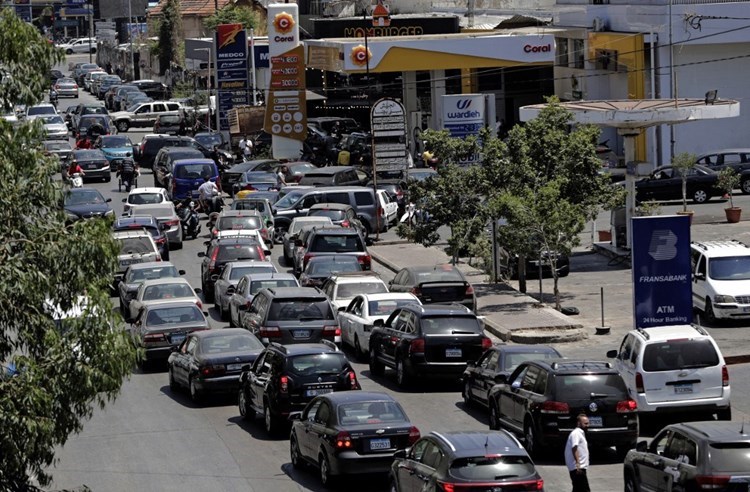UN: half of Lebanese live in poverty
United Nations reveals that more than one million Lebanese require continuous support to secure their basic needs, including food, in light of a stifling economic crisis in the country.
-

Queues in front of petrol stations in Lebanon amid a fuel crisis (AFP - Archive).
The United Nations revealed that half of the Lebanese people live in poverty and the poverty levels increased from 8% in 2019 to 23% in 2020.
According to a United Nations report revealing the tragic situation the Lebanese have reached due to the economic crisis, the consumption index rose between 2019 and 2021 by 280%, and food prices rose by 670%.
The report stated that "one million and 88 thousand Lebanese need continuous support to secure their basic needs, including food."
This comes at a time when the Lebanese pound recorded a new deteriorating record, as the exchange rate against the dollar during the past two days crossed the threshold of 15 thousand pounds on the black market.
Lebanon has been witnessing difficult economic conditions in recent years, and they have been particularly prominent since the outbreak of the October 19, 2019 protests.
Since then, the lira has gradually begun to decline against the dollar, coinciding with a severe liquidity crisis and the banks stopped providing depositors with their money in dollars, while the official exchange rate is still fixed at 1507 pounds.
The Lebanese Central Bank's dollar reserves began to dwindle, coinciding with the deterioration that was accompanied by the Port of Beirut explosion and its repercussions, as well as the Coronavirus outbreak.
The Lebanese are live in fear amid reports indicating that subsidies will be lifted off of food commodities and medicine.
Likewise, Lebanon is witnessing a fuel crisis during which fuel prices have gradually increased and intensified in the past weeks, and the Lebanese are waiting in long queues in front of gas stations, which have adopted a policy of rationing in the distribution of gasoline and diesel.
The World Bank warned this month that Lebanon's economic and financial crisis ranks among the 10 most severe crises, and perhaps among the three worst since the mid-19th century, criticizing the failure to implement any rescue policy amid political paralysis.
Since his assignment in October 2020, Prime Minister-designate Saad Hariri has not been able to form a government.

 2 Min Read
2 Min Read










